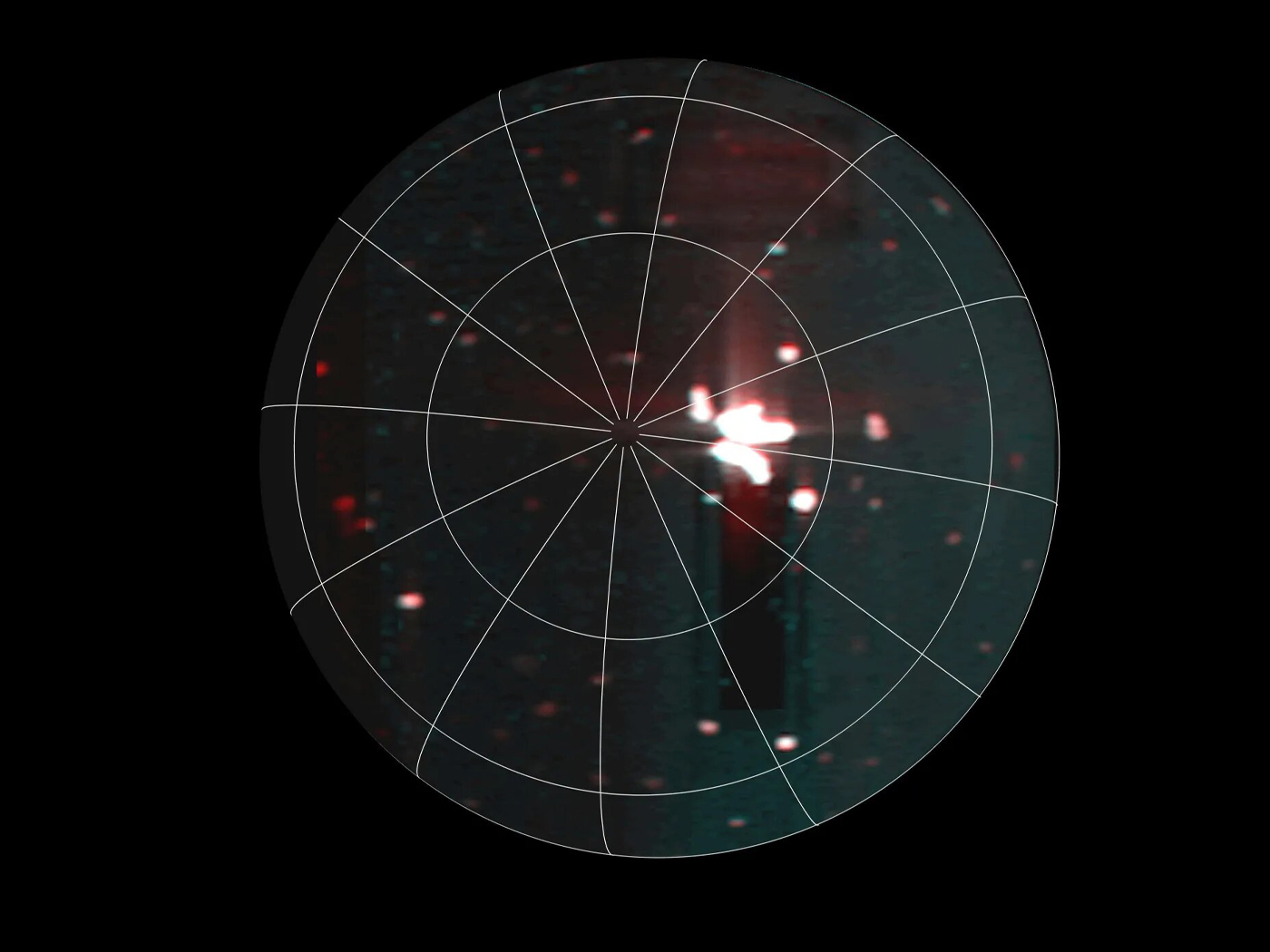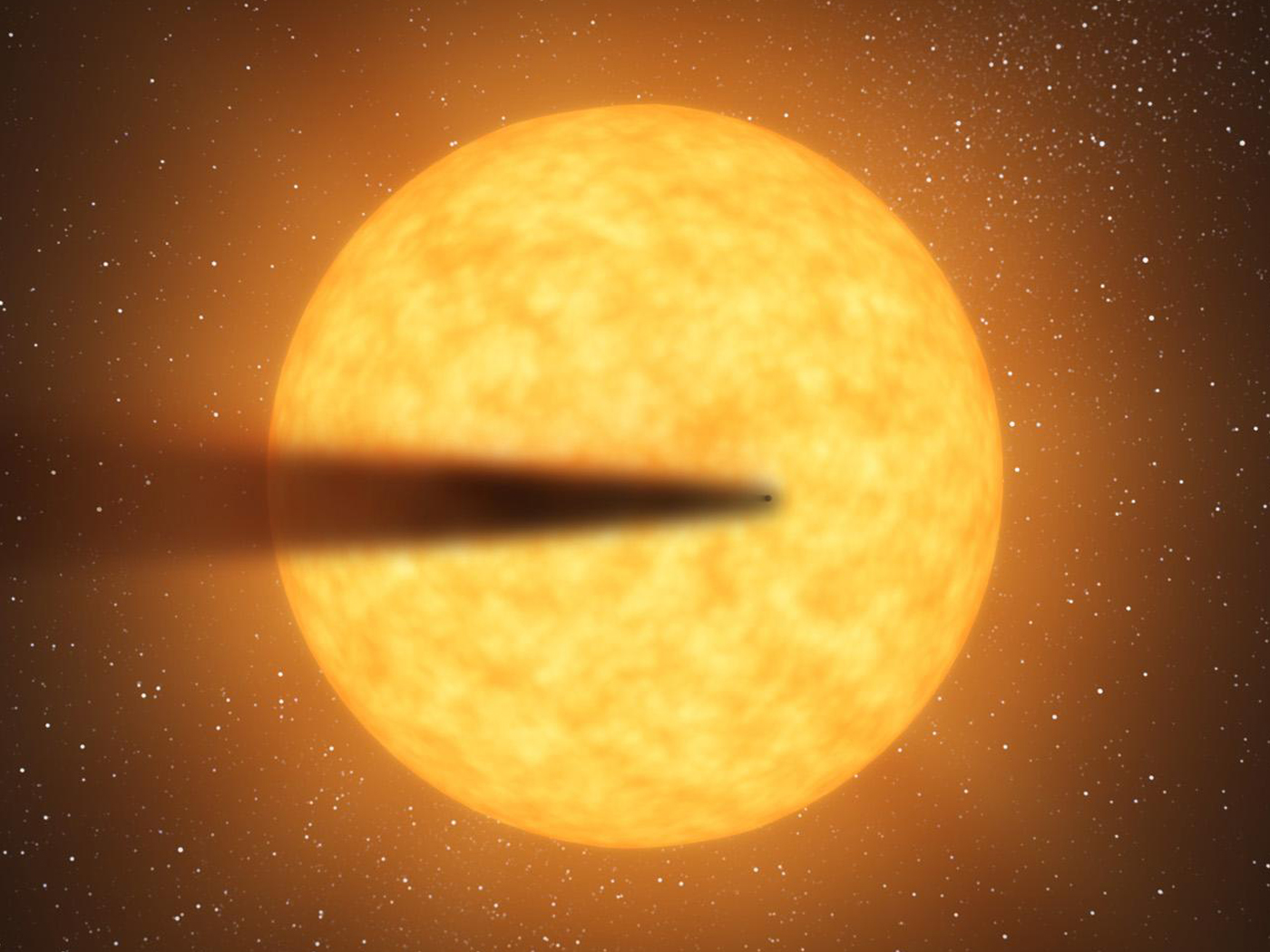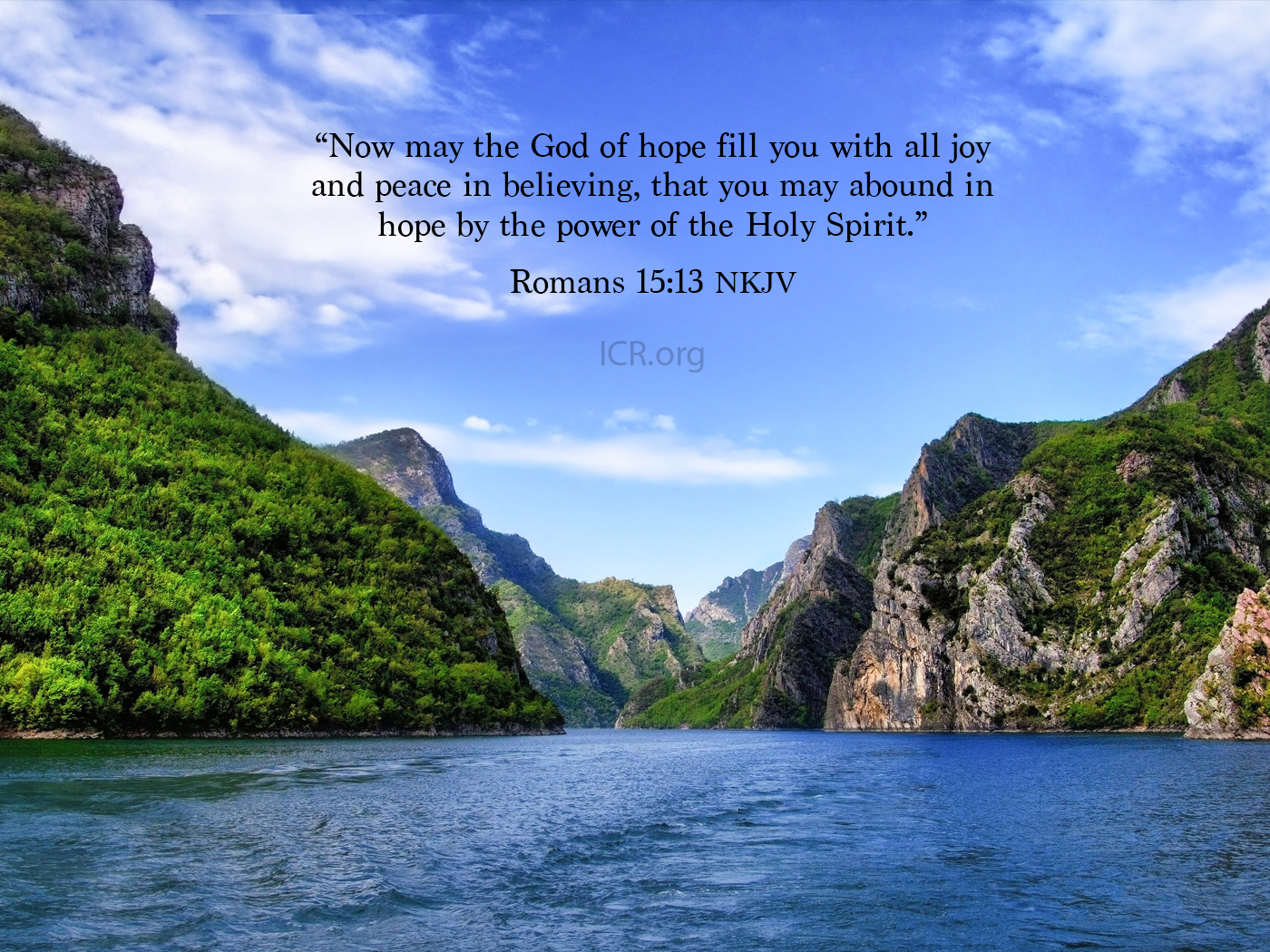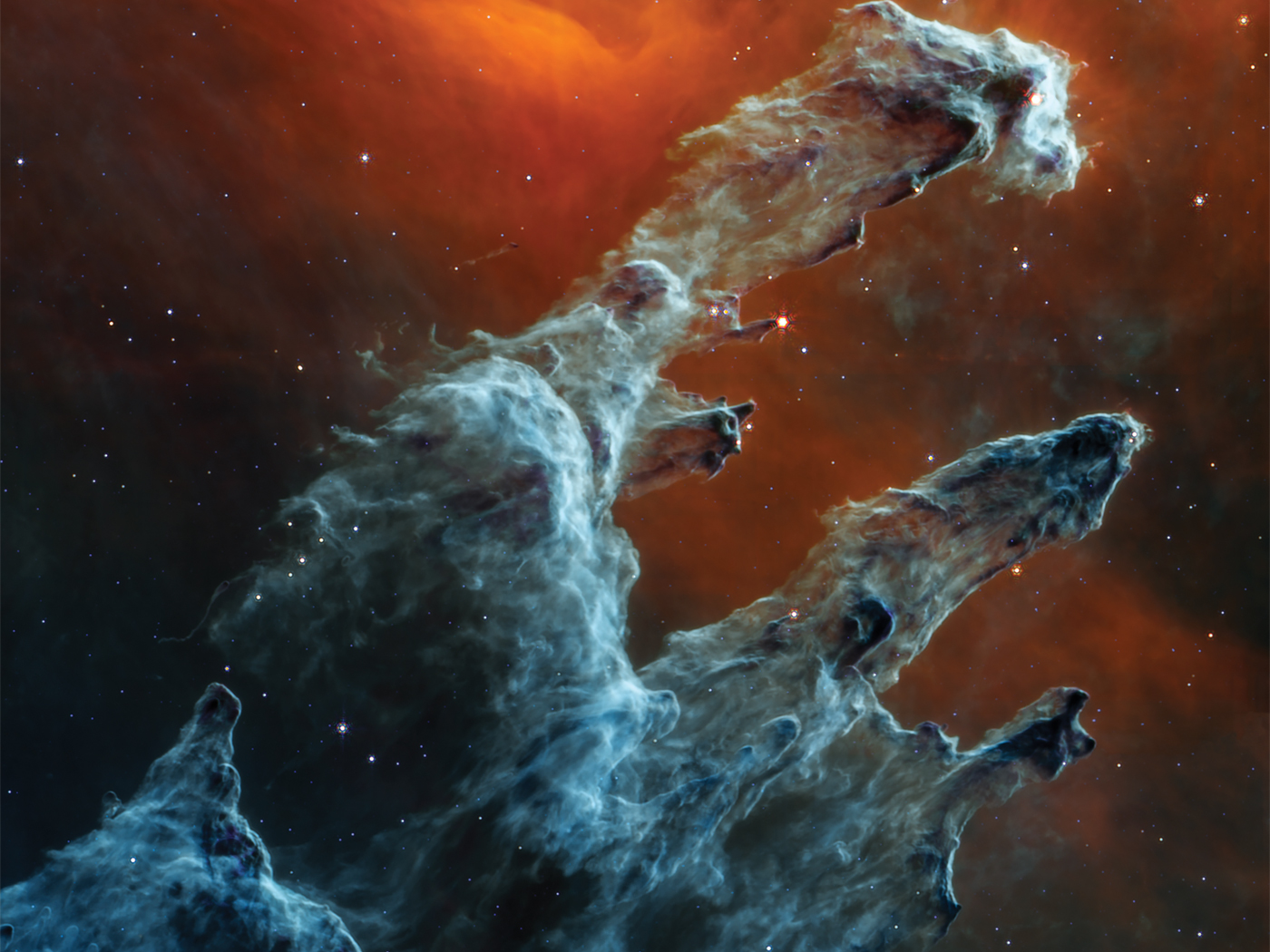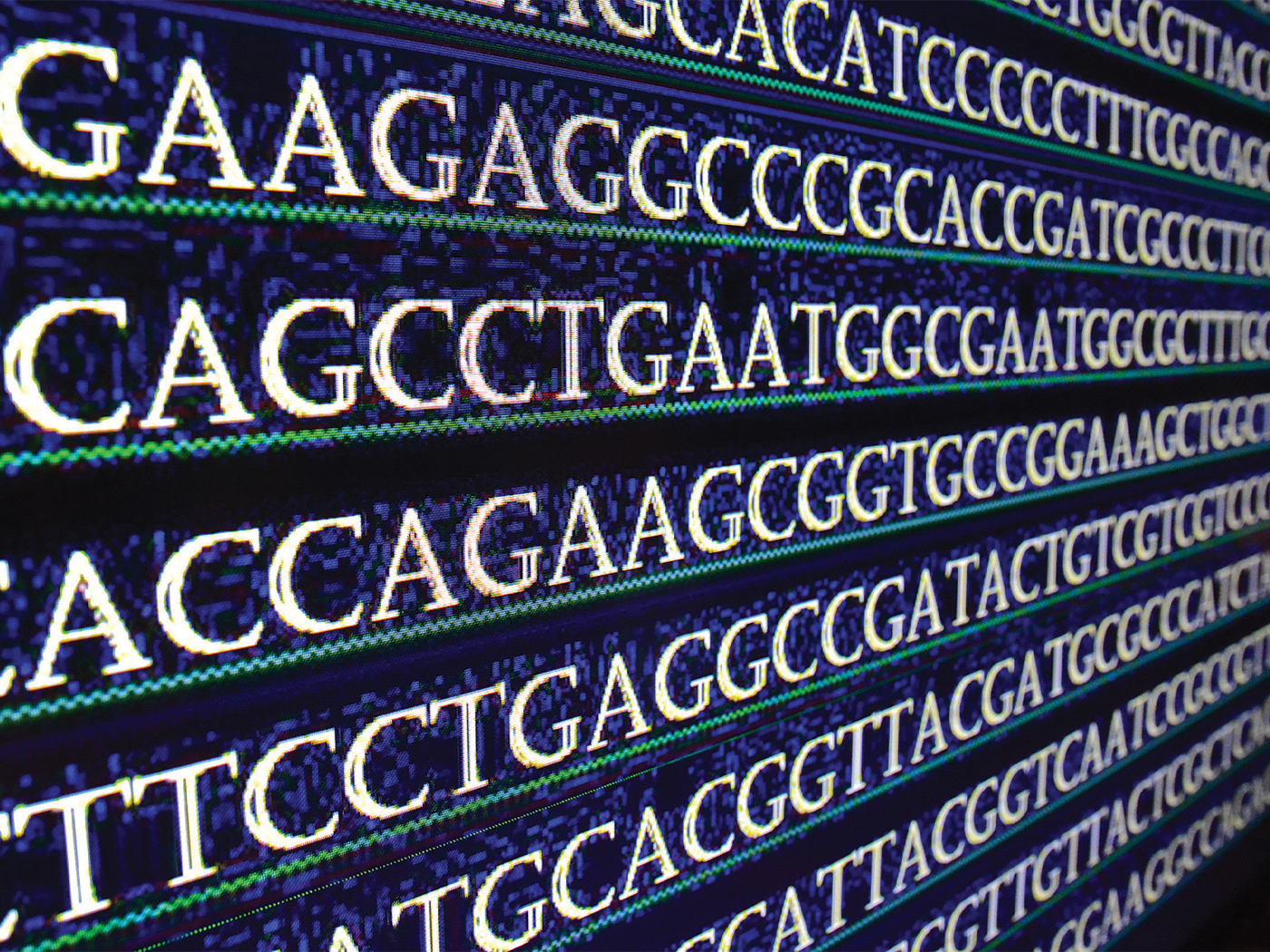Recently, the asymmetry matter/antimatter problem, one of the most serious objections to the Big Bang model, just got a little worse.1,2 The asymmetry problem involves the fact that there is very little antimatter in the universe. Antimatter is just like normal matter, except that some of its properties are opposite that of normal matter. For instance, the antimatter equivalent to the electron is called the positron. The positron has the same mass as an electron but with a positive charge, rather than negative. Likewise, the antimatter counterpart to a proton is the anti-proton which has the same mass as a proton but with a negative charge.
Our universe shouldn’t exist if the Big Bang were true! ![]()
Photons are bundles of electromagnetic energy. Collisions between high-energy photons can result in a pair of matter/antimatter particles. (Note that this is not creation out of nothing, but rather the conversion of pre-existing energy into matter.) These collisions produce precisely equal amounts of matter and antimatter.
Why is this antimatter issue a big problem for the Big Bang? Shortly after the supposed Big Bang, the universe would have been filled with extremely energetic photons. Collisions between these photons would have resulted in the production of particles—particles which would eventually become stars, galaxies, and people. So far, so good. But because these collisions always produce matter and antimatter in precisely equal amounts, the universe should, if the Big Bang model were correct, have exactly equal amounts of matter and antimatter. And yet, there is very little antimatter in the universe—so it’s been a known problem for many years.
Matter and antimatter particles annihilate one another whenever they come into contact! ![]()
Actually, it’s even worse than that, because matter and antimatter particles annihilate one another whenever they come into contact! So in this Big Bang scenario, particles and antiparticles would have been coming into existence and then annihilating one another in equal measure. And that means no particles would remain to eventually become people, stars, and galaxies. This means that even if a supposed Big Bang could somehow create a universe, that universe would forever remain devoid of matter, unlike the actual universe in which we live.
Big Bang scientists have long claimed that some unknown physics somehow allowed a slightly greater amount of primordial normal matter to be produced, and this “leftover” normal matter eventually became the material “stuff” of the universe. But because this claim is not based on any empirical science, it’s never been anything more than pure speculation. Big Bang scientists have been hoping to find some physics loophole—some tiny difference between matter and antimatter—that would allow more matter than antimatter to be produced shortly after the Big Bang, but so far they have been unsuccessful. The results of this latest experiment show that a property of the antiproton (called its magnetic moment) is identical in magnitude to the magnetic moment of its proton counterpart to within a precision of just a couple of parts per billion. This result eliminates one possible loophole that Big Bang cosmologists were hoping to exploit in an attempt to solve this longstanding problem with their model.
This result is only bizarre for someone who has a prior commitment to the Big Bang model. ![]()
One news report called the results of this experiment “bizarre,” illustrating the manner in which Big Bang thinking often taints the coverage of science reporting.3 But this result isn’t bizarre at all—it’s simply a confirmation of earlier, but less precise, measurements of the antiproton’s magnetic moment. Unlike Big Bang speculation, these measurements, which are testable and repeatable, were real science. This result is only bizarre for someone who has a prior commitment to the Big Bang model.
This is not the first time Big Bang thinking has led to the conclusion that the universe shouldn’t exist.4 You have to give Big Bang scientists credit for their tenacity. They don’t allow anything to shake their commitment to the Big Bang story, even the conclusion that our universe shouldn’t exist if the Big Bang were true!
The Big Bang is, and always has been, unsupported speculation. ![]()
It’s easy to see why secularists, desperate to explain their existence apart from a Creator, would cling to such fantastic notions. But why do so many Christians still claim that God used the Big Bang to create the universe, especially when this scientifically bankrupt speculation contradicts the Genesis creation account in so many ways?5 The Big Bang is, and always has been, unsupported speculation. This is becoming more and more obvious as time goes by.
References
- Smorra, C. et al. 2017. A parts-per-billion measurement of the antiproton magnetic moment. Nature. 550 (7676): 371-374.
- Osborne, H. The Universe Should Not Actually Exist, CERN Scientists Discover. Newsweek. Posted on newsweek.com October 25, 2017, accessed October 26, 2017.
- Griffin, A. The universe shouldn’t exist, scientists say, after finding bizarre behaviour of anti-matter. Independent. Posted on independent.co.uk October 24, 2017, accessed October 26, 2017.
- Ghose, T. Universe Shouldn’t Be Here, According to Higgs Physics. Live Science. Posted on livescience.com June 23, 2014, accessed October 26, 2017. (Note that, despite the title of this article, it’s not the physics of the Higgs boson per se that implies that the universe shouldn’t exist; rather it’s Big Bang cosmology that is leading to this conclusion.)
- Many contradictions exist between Big Bang cosmology and the Genesis creation account. For instance, the Big Bang has stars forming before the earth, whereas Genesis has the earth being created before stars (Genesis 1:1, Genesis 1:16). Likewise, the Big Bang has a molten, fiery primordial Earth, whereas the primordial Earth, according to Genesis, was a watery mass (Genesis 1:2).
*Dr. Hebert is Research Associate at the Institute for Creation Research and earned his Ph.D. in physics from the University of Texas at Dallas.
Article posted on November 9, 2017.




